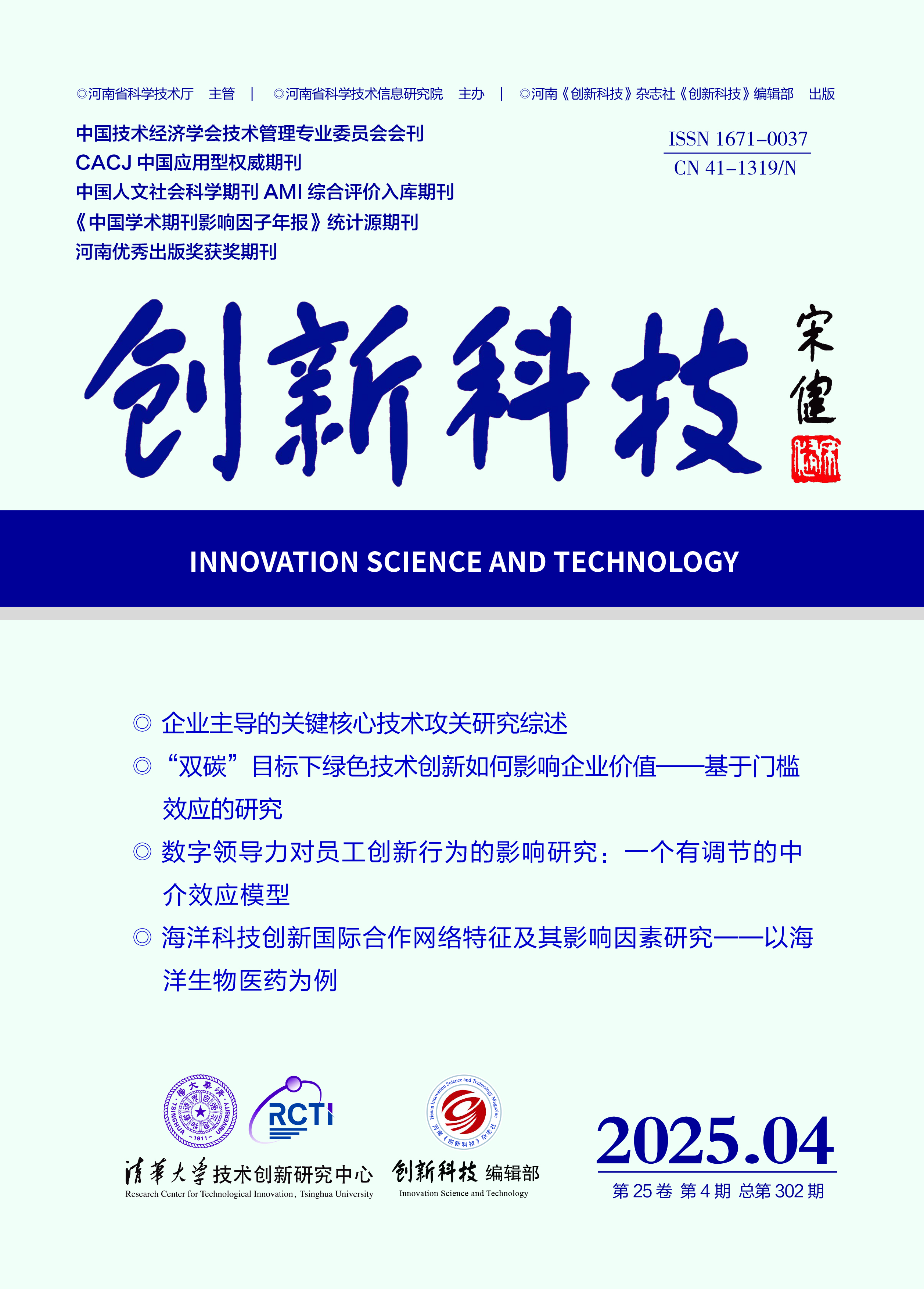INNOVATION SCIENCE AND TECHNOLOGY
Quick Search

All publication are peer-review
Peer review will take the from of double-blind review Judge objectively and impartially
There is no conflict of interest for the reviewer
Review articles shall be kept strictly confidential prior to publication
Science & Technology Strategy and Policy
The Main Demand and Supply Analysis of Science Popularization in China in the New Era
Qiu Chengli1 , Qin Qiuli2 , Zhao Shuang3 , Jin Biyuan4
(1.Science Communication Research Center of Chinese Academy of Sciences, Beijing 100190, China; 2.School of Economics and Management, Beijing Jiaotong University, Beijing 100044, China; 3.Information Technology Institute of China Railway Beijing Group Co.,Ltd. Beijing 100080, China; 4.China Construction Bank Shanxi Branch, Taiyuan 030001, China)
Abstract: The popularization of science is an important means to improve the soft power of a country. The Organization for Economic Cooperation and Development (OECD) regards the pro‐ duction, dissemination and utilization of knowledge as equally important. This expands the con‐ cept of knowledge dissemination, so the role and status of science popularization is increasingly important. From the perspective of the development process of science popularization, science popularization has completed the transition of the stage of "public acceptance-public understanding-public participation", and formed the improvement of the cognitive level of "knowing science-knowing science-using science". Science popularization is a mutually benefi‐ cial process of both supply and demand, characterized by strong interaction, participation, and experience. From the perspective of supply side, the benign interaction between the demand side and the supply side provides a good scientific, cultural and social atmosphere for China's sci‐ ence popularization. This paper puts forward a stakeholder model for science popularization. The stakeholder model of science popularization refers to the demand-side or supply-side that has interest relationship with the process of science communication in the new era. Among them, young people, farmers, industrial workers, the elderly, leading cadres and civil servants as the demand side of science popularization, need economic, political, science and technology, culture and other natural science knowledge, on the one hand to improve the level of scientific knowl‐ edge in technology, nature and other fields, on the other hand to encourage the public to partici‐ pate in science popularization, which is an important goal of science popularization. Institutions of higher learning, scientific research institutions, media organizations, science and technology enterprises, and social organizations are potential supply resources for science popularization, and they are committed to better popularization of natural science knowledge to the public. In the process of mutual benefit of both sides of science popularization, in order to achieve the best social benefits of science communication, maintaining the relationship between the demander and the supplier of science popularization is the key to maximize the value of science communi‐ cation. It is necessary to prioritize the dependence degree of stakeholders according to the needs and objectives of each type of stakeholders. Based on the stakeholder model of science popular‐ ization, this paper analyzes the supply capacity and development goals of China's science popu‐ larization in the new era, and analyzes the main problems in government policies, input, re‐ sources, capacity and social environment of science popularization from the perspective of sup‐ ply and demand, and concludes that maintaining the relationship between the demand side and the supply side of science popularization is the key to effective science popularization. Some sug‐ gestions were put forward to promote the precision of science popularization and supply in the new era and improve the level of information technology.
Key words: science popularization; science popularization demand; science popularization supply; key population